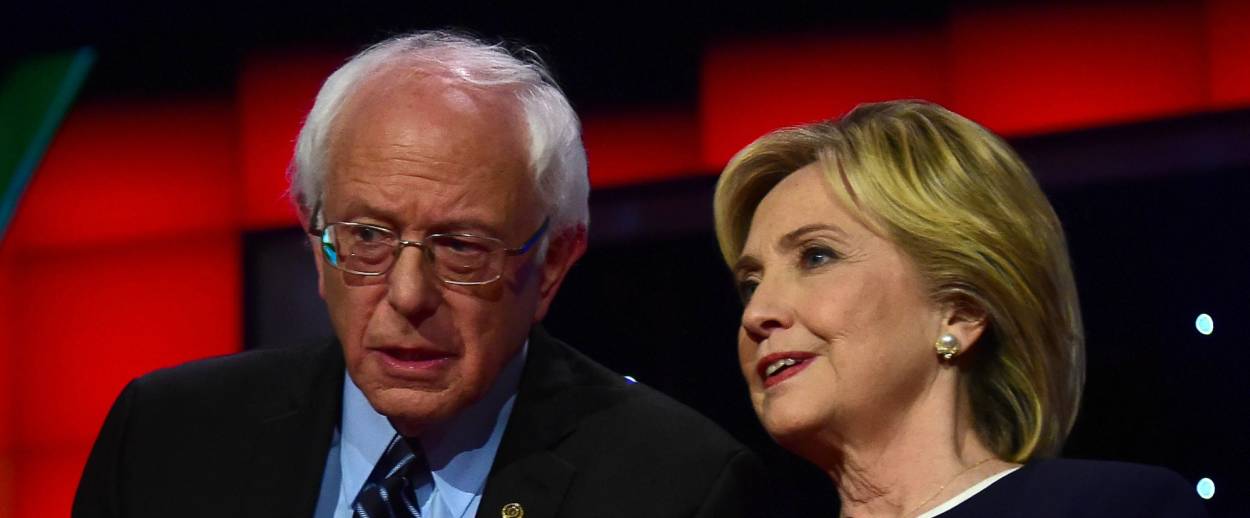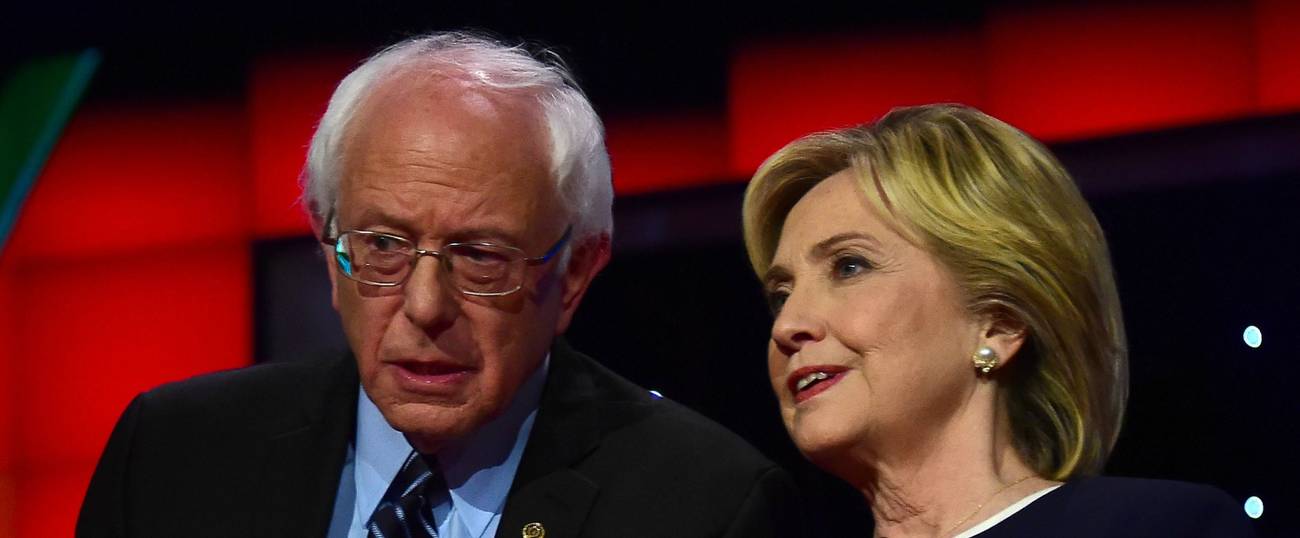Bernie, Hillary, and the Black Vote
Bernie Sanders may be a protest candidate in 2016, but Hillary Clinton—and Bill before her—has cultivated black support for decades. It’s paying off.




A friend asks me, “Why do blacks reject Bernie so much?” He is puzzled, together with probably everyone else in Bernie’s ranks. Didn’t Bernie get himself arrested in 1961 in a Civil Rights demonstration? Doesn’t his vision of economic equality offer hope to the black community? But I am puzzled that anyone is puzzled.
The African-American political tradition is exceptionally sophisticated, and that is because the tradition of protest is strong, which allows people to appreciate that marches are marches, and elections are elections, and protests are not the same as politics. The American blacks of the last couple of generations, who can claim one of the most glorious protest movements in world history, have accordingly never chosen to lend much support to protest candidates. Jesse Jackson’s candidacy for the Democratic nomination, back in 1984 and again in 1988, was an exception, but that was only because he persuaded a lot of people that he was not, in fact, a protest candidate. No one seriously expected Jackson to win the nomination, but he argued that, even so, if he did well enough in the primaries, he would emerge as a powerful broker in the Democratic Party. This was a fallacy. The argument assumed that American politics works in the Israeli style, where a marginal party supported by a particular ethnic or ideological slice of the electorate can wheel and deal with the big players in the back room. Winner-take-all is the American system, though. If you come in second or third or tenth in the primaries, you get to deliver a marvelous speech at the party convention, and then you go home. So the lesson was learned.
Bernie Sanders in 2016 is a protest candidate. The purpose of the campaign is to raise an issue. But his supporters are not going to gain anything from it, apart from the satisfaction of expressing themselves. Nor does Bernie command the loyalties that were Jesse Jackson’s, given Jackson’s history in civil rights. It is excellent that, in his student days, Bernie marched in marches. But then came his Senate days. He voted generally in ways that might please black voters, though sometimes he was a little sharp in his criticisms of President Obama. But he did not spend year after year flying around the country to lend his support to black politicians and causes, and this was because his priorities were elsewhere.
Hillary, though—she and Bill have spent a lifetime cultivating black support. You might respond by asking, what has this ever done for black America? Bill Clinton’s welfare reform and his policies on crime in the 1990s—didn’t those policies wreak a lot of harm? I would answer by recalling that, back in the day, opinions differed on the probable effects. African-Americans were by no means of one mind. In other respects, under Bill, America generally prospered, and a big swathe of black America felt the benefit. And there is something else. A fundamental black demand has always been for a reform in American culture. Blacks demand recognition and respect, not just as a gesture. Jimmy Carter provided some of that, back in the 1970s, and he was regarded well by black voters, who thereby surprised the white, left liberals by refusing to defect from Carter to an insurgent campaign in the 1980 Democratic primaries by Ted Kennedy. But Bill Clinton as president outdid Jimmy Carter.
Nor did Bill and Hillary’s attention to the black political world come to an end, once Bill was out of office. On the contrary, Bill set up his post-White House office in Harlem. Hillary struck up an alliance with Charles Rangel, the Harlem Congressman, who launched her into electoral politics by championing her for Senate in New York State. And the retail politics continued—the speech-making to little groups around the country, the attendance at funerals, the phone calls and everything else. Recognition is relentless, or nothing; and here was recognition. Does this seem meaningless? African-Americans constitute a quarter of the Democratic Party nationwide, and in some respects are more powerful yet, given their majority among Democrats in South Carolina (as we have seen) and in various other places, and given an impressive discipline at voting en bloc. The demand for recognition is not a demand for niceness or friendliness, though everyone appreciates a friendly person. It is a demand for recognition of reality. The Clintons are good at reality.
It is a little dismaying that a white left always seems naive on these points. Back in 2000, Ralph Nader ran as an independent against George W. Bush and Al Gore, and he aroused a real enthusiasm, here and there. But no one among his supporters seemed to notice that his support among blacks was less even than Bush’s. If there was a white candidate, it was Nader. Bernie is greatly preferable, and that is because, having learned the lesson of 2000, he does not want to throw the election to the Republicans. He has made clear that, in the end, he will come around to supporting Hillary. And he has made clear that earnestly he wishes for black support.
His wishes are irrelevant, though. I find his protests admirable, by and large, and I will applaud when he makes his speech at the convention; but he has ended up recreating a dynamic of the Nader campaign. Bernie is the leader of a white movement. The young people in Bernie’s movement who feel that, as a generation, they have claimed their identity, and they have inaugurated a new moment in American politics, and they are the future—they had better think again. Maybe they are America’s past. From the standpoint of black-white relations, the progressive candidate in 2016 is Hillary. The proof was Super Tuesday.
Paul Berman is Tablet’s critic-at-large. He is the author of A Tale of Two Utopias, Terror and Liberalism, Power and the Idealists, and The Flight of the Intellectuals.